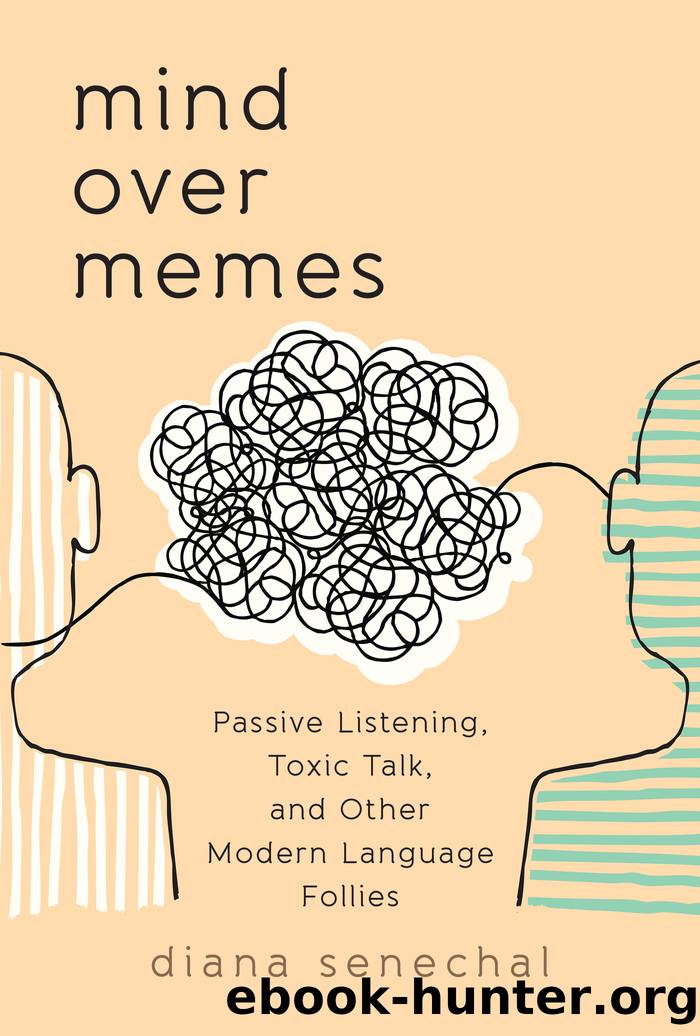Mind over Memes by Diana Senechal

Author:Diana Senechal
Language: eng
Format: epub
Tags: undefined
Publisher: Rowman & Littlefield Publishers
Published: 2012-01-15T00:00:00+00:00
After these justices, social justice seems limited, even superficial. Yet the other justices cannot exist without it or vice versa. To exercise social justice is to secure a standard of living, including liberty, for a collective. The collective is never fixed; groups merge and dissolve. Individuals join and leave. Still, no matter what the changes, the essential goal of social justice remains the same: to secure and defend the rights of underprivileged groups. This work liberates and limits those involved. Eventually it must include other justices or crumble into nothing.
Martin Luther King Jr.âs âLetter from a Birmingham Jailâ (1963) epitomizes social justice that extends to other justices. In this letter, addressed to eight white Alabama clergymen who objected to the nonviolent civil rights protests in Birmingham, King argues that the African American cause is actually part of the great human cause of the centuries. Neither he nor his people are âoutsiders,â he points out, since injustice affects everyone. Nor is obeying the law an absolute good, since laws are not always just. âA just law,â he explains, âis a man-made code that squares with the moral law or the law of God. An unjust law is a code that is out of harmony with the moral law. To put it in the terms of St. Thomas Aquinas: An unjust law is a human law that is not rooted in the eternal or natural law.â Because of this, âinjustice anywhere is a threat to justice everywhereâ; in breaking the eternal law, it damages humankind.[13]
In quoting from philosophical and religious texts, King emphasizes the gravity and longevity of the civil rights struggle. But he does not rest with the large view; instead, he explores the implications of injustice for the individual. He describes the father who sees his six-year-old daughterâs eyes tear up when she learns that she canât go to the amusement park that has been advertised on television and sees âthe depressing clouds of inferiority begin to form in her little mental sky.â Here King speaks not only of tears and disappointments but of changes to the structure of oneâs internal being. In addition, he asks his readers to imagine this, to go beyond their usual awareness. His view of justice moves outward and inward; continually searching and questioning, it resists dogma and self-righteousness.
In contrast, some approaches to social justice avoid such searching; they rest on certainty and conviction. But this easy route has dangers. It is easy to adopt a stance in favor of a groupâs rights; it is harder to be kind to the person standing before us. To avoid the difficulty is to flatten the justice. Any social justice pursued to the exclusion of other justices becomes unjust; it lacks calibration and truth.
The violent student response to Charles Murrayâs visit to Middlebury College in March 2017 stands as an example of justice gone askew. Murray was invited to Middlebury by the American Enterprise Institute Club to speak on his recent book on class relations. He was widely
Download
This site does not store any files on its server. We only index and link to content provided by other sites. Please contact the content providers to delete copyright contents if any and email us, we'll remove relevant links or contents immediately.
Cecilia; Or, Memoirs of an Heiress — Volume 1 by Fanny Burney(32527)
Cecilia; Or, Memoirs of an Heiress — Volume 2 by Fanny Burney(31928)
Cecilia; Or, Memoirs of an Heiress — Volume 3 by Fanny Burney(31916)
The Lost Art of Listening by Michael P. Nichols(7480)
Asking the Right Questions: A Guide to Critical Thinking by M. Neil Browne & Stuart M. Keeley(5741)
We Need to Talk by Celeste Headlee(5597)
On Writing A Memoir of the Craft by Stephen King(4920)
Dialogue by Robert McKee(4375)
Pre-Suasion: A Revolutionary Way to Influence and Persuade by Robert Cialdini(4196)
I Have Something to Say: Mastering the Art of Public Speaking in an Age of Disconnection by John Bowe(3864)
Elements of Style 2017 by Richard De A'Morelli(3331)
The Book of Human Emotions by Tiffany Watt Smith(3282)
Fluent Forever: How to Learn Any Language Fast and Never Forget It by Gabriel Wyner(3066)
Name Book, The: Over 10,000 Names--Their Meanings, Origins, and Spiritual Significance by Astoria Dorothy(2962)
Why I Write by George Orwell(2933)
Good Humor, Bad Taste: A Sociology of the Joke by Kuipers Giselinde(2931)
The Art Of Deception by Kevin Mitnick(2782)
The Grammaring Guide to English Grammar with Exercises by Péter Simon(2728)
Ancient Worlds by Michael Scott(2661)
